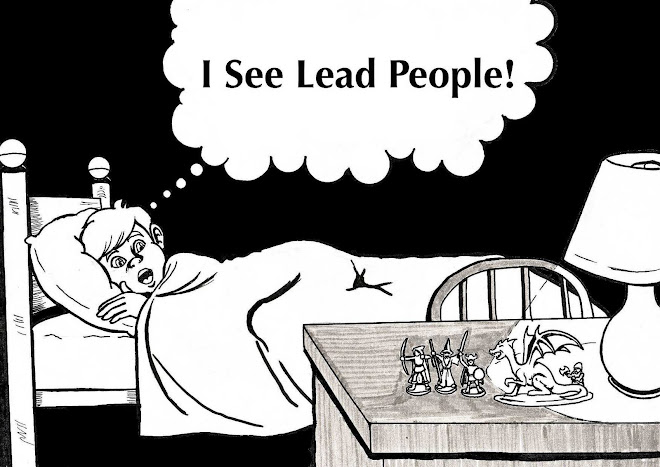Just about every role-playing game has some form of common language. This is generally done for the convenience of the game and in many cases, such as D&D doesn't even veil it with any sort of thematic guise. But are common languages really a cheat? For me this is a yes and a no.
The real world is and has been full of them in the past and present. Known as pidgins or jargon, these languages usually take the form of simplified versions of language, often combining words from several distinct languages to form a medium by which people of different languages can communicate. North America alone was home to dozens of jargon. One of my favorite words, "skookum" comes from the local Chinook jargon.
Common tongues have not and do not necessarily have to be simplified languages. In many cases they are root languages or languages of status that are used by a culture at large to communicate across national boundaries in a way to bind people together or to lord over them. Latin is an example of such a language, having been used by the Romans to bind their empire together under one common cultural umbrella. No matter what province you were from, if you spoke Latin, you knew you were part of a greater empire and would likely find somebody you could talk to no matter where you went.
Today, we see the same thing happening with English and Spanish. Both languages have spread far and wide because of the early colonial efforts of their parent cultures. In more modern times they continue to be used as common tongue and even trade languages because so many people have bothered to or naturally speak them.
In an RPG setting where you usually have so many languages about it makes perfect sense, from a game design standpoint, to have some sort of common tongue. This can be making things too easy for your adventurers and the presence of a common tongue can very quickly invalidate the need for those languages in the first place, but a lot of the power of common tongues comes from how they are used or abused.
Common tongues do not have to be all encompassing. Just like the dozens of jargon and pidgins found in North American native culture, RPG commons can have a regional basis. A jargon in the west of a campaign setting may not be used in the south or the highlands or the coastal regions, etc.. Travellers crossing between regions may find their common tongue of limited use or even useless.
Another way to handle common tongue is not to have a common tongue at all but to groups languages into linguistic families, much like we have in our own world. Individual nations or cultures may have their own specific dialects or distinct languages within these linguistic groups, but people of a common linguistic group may find some common ground for communication in the basic roots and common sounds and ideas within their particular group. To use the above example, the people of the west may all speak one form or another of a language even though there are at least five distinct nations there. Those along the coast speak another language distinct from the western people and the highlanders have their own strange language with a dozen dialects depending on what valley you hail from.
This can also be done with non-human languages. Tolkien had Black Speak, the language that all of the evil creatures of Mordor seemed to share. In my own games, I have the goblin tongue, which is a common name given to the language group that most humanoids speak. Different tribes and regional groups may speak variations, but they share the same root. Elves in my games are treated similarly with sylvan elves having a more rustic dialect than the high elves which is still removed from their original tongue spoken only by a very small group of elves living in the elven homeland.
Mechanically speaking, a GM may have to tweak the language system of whatever rules set he is using to allow for the increased variety in languages and players will have to work a little harder to keep track of their languages. The end result can be quite interesting though, as local color and dialectal differences may cause some trouble for the unsuspecting adventurer. A deal made by an orc of the Brackish Pool may not hold as much water when interpreted by his cousins of the Rabid Weasel clan.
Make sure you check your tense when conjugating your trollish verbs and don't forget that there is no gender tense in southern Drakkish like there is in the other Drakkish nation.
Take care,
-Eli




































































Trolls live only in the moment, so only have one verb tense. Hearing someone speaking Troll can make other people tense.
ReplyDeleteI agree that languages in RPG games can add extra layers to the fun. I had some thoughts on languages in RPGs in this post on my blog which may be of interest.
THe Emperors of old beat a common language into the natives thye conquered long ago.
ReplyDelete-J
I like how Warhammer FRP did it. Everyone spoke a dialect of Old Worlder (assuming they are from the Empire, Tilea, Estalia, Bretonnia, or Kislev, at least).
ReplyDeleteIf you spoke slowly and carefully, you could be understood. Slip back into dialect, and the others can't usually follow you.
And why do non-humans only get one language? Hardly seems fair. They may have the same roots, but the varying Dwarfholds ought to speak different languages, I think. Like French and Spanish wnadering from Latin.
Nice image, by the way.
ReplyDelete